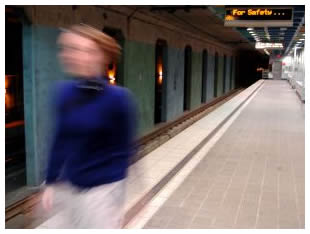 In this blog, we continue with simple, concise explanations of much of the language and terminology used by mental health professionals in the treatment of schizophrenia.
In this blog, we continue with simple, concise explanations of much of the language and terminology used by mental health professionals in the treatment of schizophrenia.
• Hearing voices
A type of hallucination in which the sufferer hears voices, or hears his or her own thoughts actually spoken aloud, or other sounds that no-one else can hear. Often several voices may occur at once, causing acute stress for the sufferer. The voices are invariable negative in tone.
• Maintenance therapy
Treatment which is aimed at the reduction of relapse and may include regular hospital in-patient admissions in an attempt to reduce stresses experienced in coping with life.
• Negative symptoms
Refers to a loss or decrease in mental function, and includes withdrawal from others, lack of motivation, focusing on the self. Possibly a coping mechanism to deal with the presence of Positive Symptoms (see below).
• Occupational Therapist
Health professional who assists in improving the life skills of the sufferer, including the ability to handle daily requirements of an adult (such as payment of bills, dealing with tradespeople) as well as improving person-to-person interaction.
• Positive Symptoms
Active symptoms of psychosis that reflect a distortion of reality and include hallucinations and delusions.
• Prodrome
The term to describe a person who is exhibiting initial signs of the development of schizophrenia but has not yet displayed acute symptoms. Intervention at this stage of the illness is most beneficial for a positive long-term prognosis and quality of life.
• Psychiatric nurse
A specialist nurse trained in the treatment and care of psychiatric disorders.
• Psychiatrist
A doctor who specializes in the diagnosis and treatment of mental disorders.
• Psychologist
A mental health professional that specializes in the assessment and non-medical treatment of mental disorders.
• Psychosis
A mental phenomenon involving a loss of contact with reality.
• Psychotherapy
A non-specific term that generally refers to “talk-therapy” or counseling aimed at uncovering and understanding mental conditions in order to better treat them.
• Relapse
The reoccurrence of acute symptoms after a period of relative wellness.
• Schizo-affective disorder
A condition in which sufferers experience symptoms of both schizophrenia and mood disorder simultaneously, i.e. hallucinations and delusions may alternate with mania and depression.
• Serotonin
A neurotransmitter in the brain associated with mood regualtion.
• Tardive dyskinesia
Abnormal involuntary tics and movements, usually involving the hand and face muscles. Sufferers may roll their lips or constantly make repetitive movements of the finger tips. The phenomenon occurs as a result of long-term use of antipsychotic drugs and is often irreversible.
• Typical antipsychotic drugs
An older class of antipsychotic medication (as opposed to atypical antipsychotic medications, see previous blog). May also be referred to as conventional antipsychotics.
Contact Beth McHugh for further information or assistance regarding this issue.

